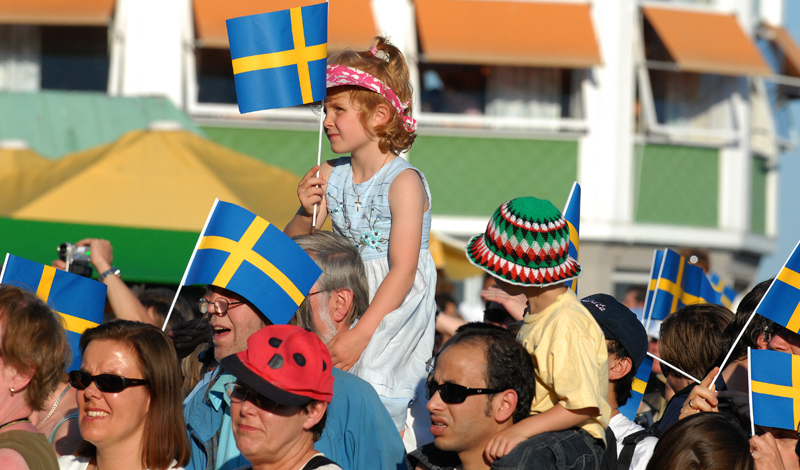Jantelagen; just so... Swedish!
Or is it? There are certain things that are so Swedish, they could be symbols for our country.
-
 Sweden's National Day, June 6, celebrated at Skansen outdoors museum in Stockholm. Photo courtesy Skansen.
Sweden's National Day, June 6, celebrated at Skansen outdoors museum in Stockholm. Photo courtesy Skansen. -
-
And yet, when it comes to the 'Jante Law' it actually has other origins. The Jante Law (Swedish: Jantelagen) is a concept created by the Norwegian/Danish author Aksel Sandemose in his 1933 novel “A refugee crosses his tracks” (En flygting krydser sit spor). The small Danish town, Jante, is modeled upon his native town, Nykøbing Mors, as it was in the beginning of the 20th century, but typical of all very small towns, nobody is anonymous.
There are ten different rules in the law, but they are all variations on a single theme and are usually referred to as a homogenous unit: “Don’t think you’re anyone special or that you’re better than us.” The ten rules are:
1. Don’t think that you are special.
2. Don’t’ think that you are of the same standing as us.
3. Don’t think that you are smarter than us.
4. Don’t fancy yourself as being better than us.
5. Don’t think that you know more than us.
6. Don’t think that you are more important than us.
7. Don’t think that you are good at anything.
8. Don’t laugh at us.
9. Don’t think that anyone cares about you.
10. Don’t think that you can teach us anything.
In the book, those who transgress the Jante Law (it should be said that this is an unwritten “law”) are regarded with suspicion and hostility, as doing so goes against communal desire in the town, which is to preserve social stability and uniformity.
The Jante Law has become symbolic of what many see as a permeating cultural code in Norway, Sweden, Denmark, and other Nordic countries: It is frowned upon to appear to elevate oneself or claim to be better or smarter than others. Those who assert to the influence of the Jante Law often maintain that the values of the Danish and other Nordic welfare states can be credited to the persistence of the Jante Law, in particular their stress on social equality and their emphasis on fairness for all. Others point to such traits as Protestant work ethic and an early development of a modern central government in the Nordic states.
The Jante Law is a product of the agrarian society that existed in Scandinavia until the beginning of the 20th century, where adherence to social norms was necessary to maintain cohesion and stability in the small villages. Due to a fairly recent industrialization compared to many other countries, as well as a general sparse population, Scandinavia has maintained many social aspects of this society even while being among the most modernized regions in the world. -
-
